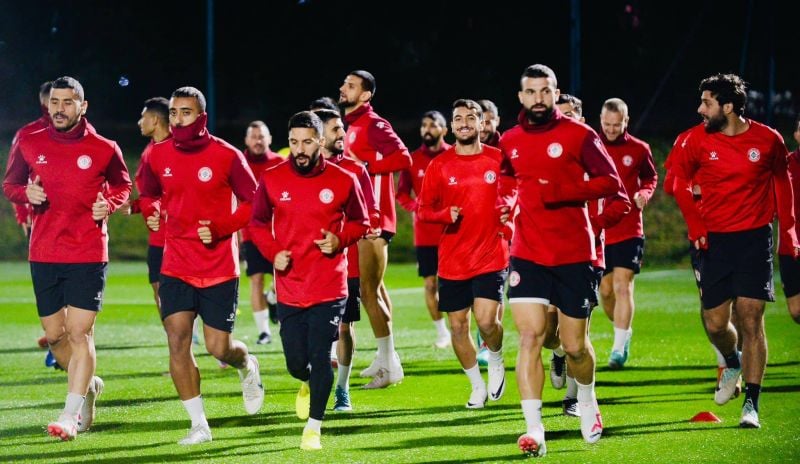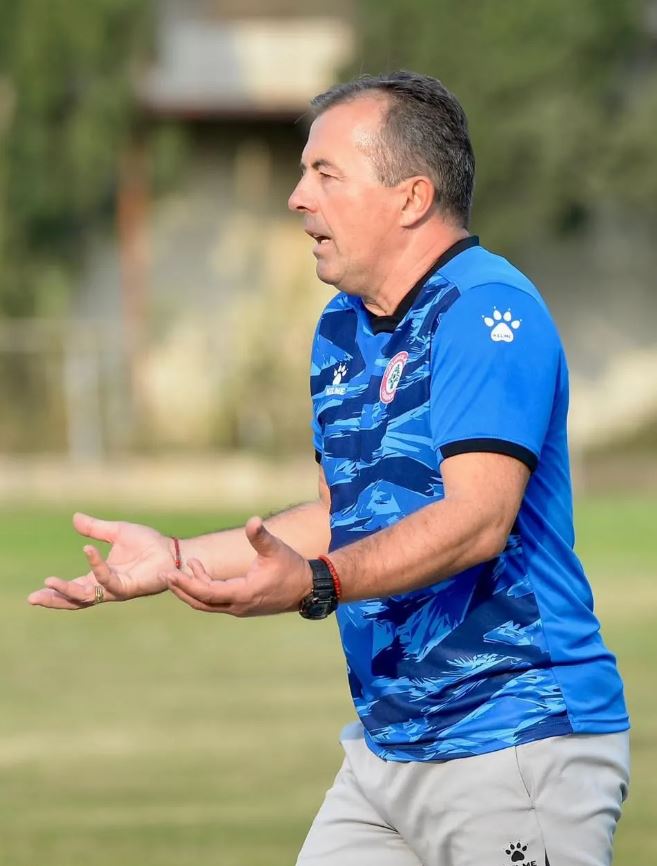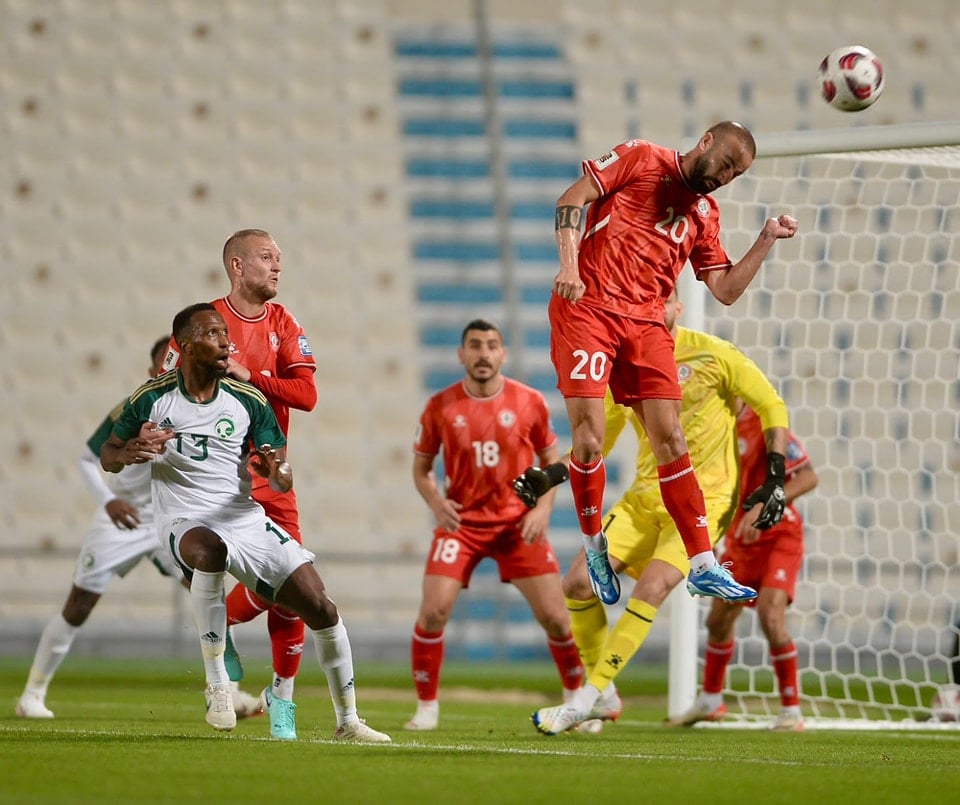
The Lebanese football selection during their last training before the opening match of the 2024 Asian Cup against Qatar on Friday in Doha. (Credit: Lebanese Football Association)
BEIRUT — Lebanon is gearing up for the kickoff of the 18th edition of the Asian Cup against Qatar, set for this Friday at 6 p.m.
Former Lebanese football captain Moussa Hojeij said on Al-Kass TV Sports channel last Sunday that he anticipated Lebanon would likely finish fourth in their group.
He cited the national team's disappointing play over the past three years as a significant reason, saying that a few recent acceptable matches cannot override a history of negative outcomes.
But not everyone agrees with him.
Former national women's team member Assile Toufaily and Lebanese football scholar Maroun Mahfoud express a renewed sense of hope, based on Lebanon's latest performances and the faltering form of their adversaries, China and Qatar.
The resurgence of optimism among Lebanese fans is largely thanks to the return of Miodrag Radulovic as head coach. The Montenegrin previously helmed the team from 2015 to 2019 and was re-appointed to the position a month ago, taking over from his brief predecessor, Croat Nikola Jurcevic.
Radulovic, known for emphasizing a solid defensive block and counter-attacking with the team's offensive talents, has already steered the team to promising results against Jordan and Saudi Arabia.
With a sense of camaraderie reportedly restored in the locker room and veteran players like Hassan Maatouk leading several others who may be on their final international campaign, Lebanon seems poised to make an impact. They will also be joined by diaspora players, although potential inclusions like Alexander Succar and Leonardo Chahine faced administrative delays.
Qatar, the reigning champion, faces its own pressures after a series of disappointing performances, including an unexpected loss to Jordan and the dismissal of Portuguese coach Carlos Queiroz in favor of Spain's "Tintin" Marquez Lopez.
 Miodrag Radulovic during a Lebanese selection training in Qatar. (Credit: Lebanese Football Association)
Miodrag Radulovic during a Lebanese selection training in Qatar. (Credit: Lebanese Football Association)
While China is reportedly undergoing a "full-blown crisis," according to local media, and Tajikistan is a wildcard in its first Asian Cup, the restructured tournament now offers four additional spots for the best third-placed teams from each group. This new rule provides Lebanon with a glimmer of hope for advancing further than previously thought, boosting the spirits of the team and their fans back home.
The complete roster for Lebanon includes goalkeepers Mehdi Khalil, Mostafa Matar, and Ali Sabaa; defenders Hussein Zein, Nour Mansour, Kassem El Zein/Hassan Chaitou, Maher Sabra, Alex Melki, and Nassar Nassar; midfielders Walid Shour, Hassan Srour, Felix Melki, Mohammad Haidar, Ali Tneish, Yahya Hindi, Mohammad Ali Dhaini, and Jihad Ayoub; and attackers Hassan Maatouk, Bassel Jradi, Ali El Hajj, Hilal El Helwe, Soony Saad, Daniel Lajud, Gabriel Bitar, and Omar Bugiel.
 A friendly match between Lebanon and Saudi Arabia on Jan. 4, 2024. (Credit: Lebanese Football Association)
A friendly match between Lebanon and Saudi Arabia on Jan. 4, 2024. (Credit: Lebanese Football Association)
This article is an adaptation of an article published in French in L'Orient-Le Jour.